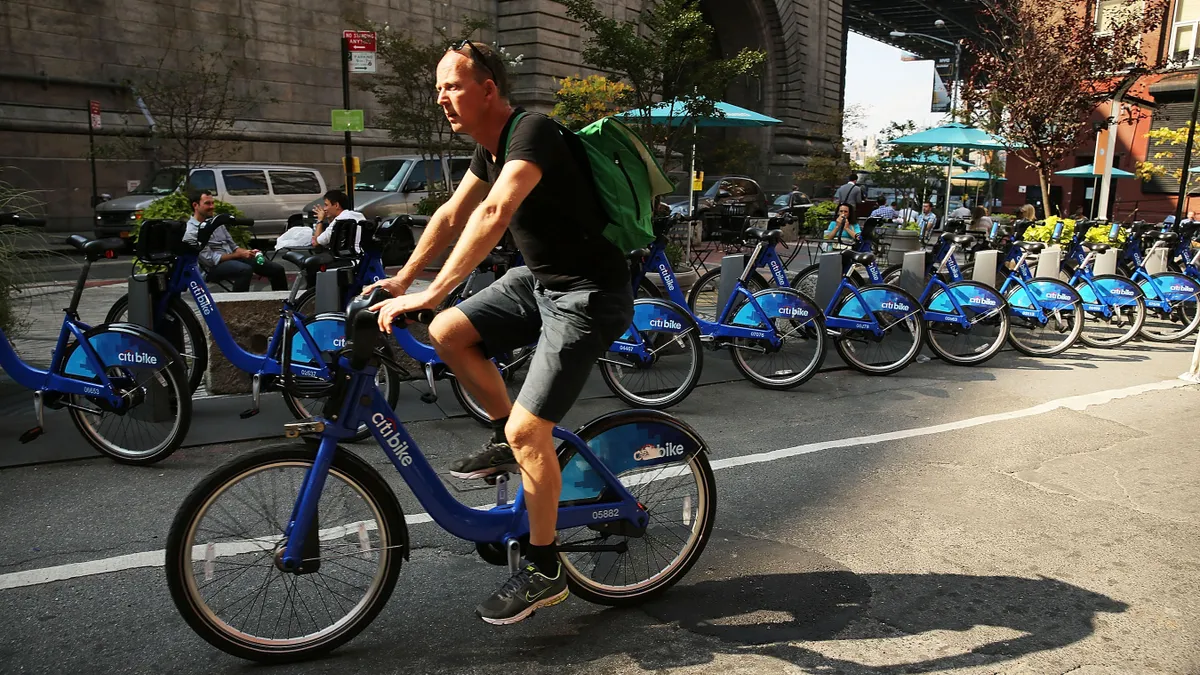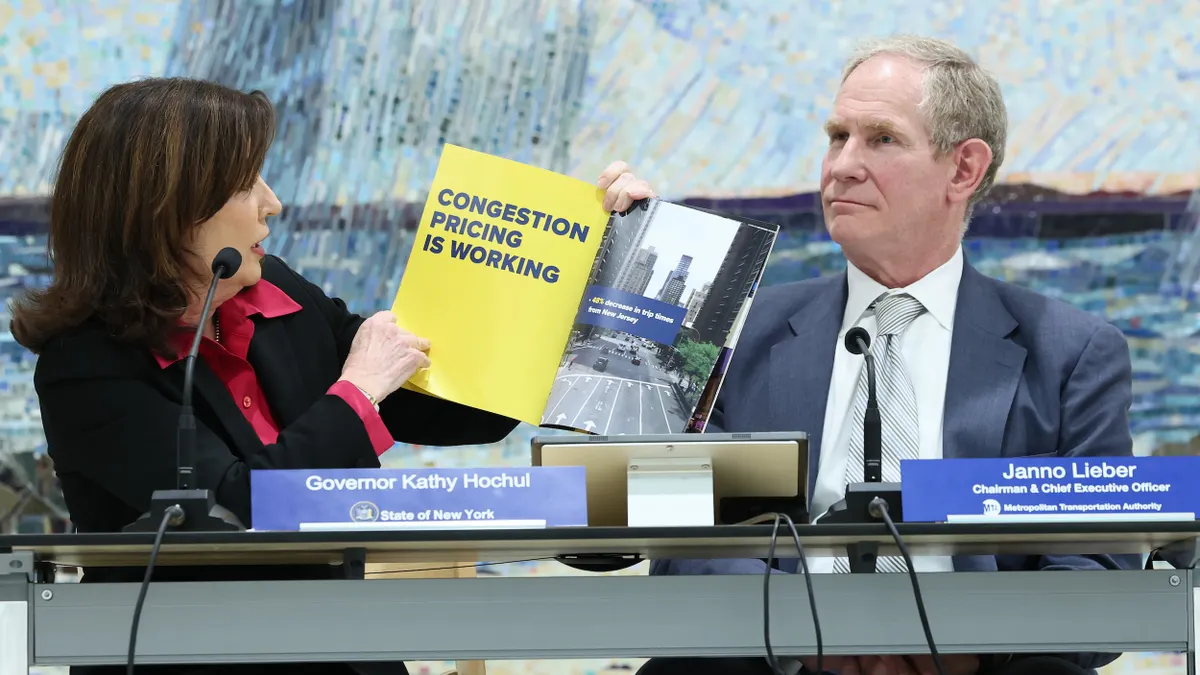Dockless bike-share provider ofo has blamed city regulations for its decision to almost entirely withdraw from the United States, accusing them of throwing up "obstacles" to the company’s progress.
The China-based company said last week it would be pulling out of numerous U.S. cities and laying off staff, and only operate in cities like San Diego and Seattle, where regulations on dockless bikes are not as strict. In a statement to CNN, Andrew Daley, head of ofo North America, said the company "has begun to reevaluate markets that present obstacles."
It comes as part of a wider international downsizing for the company, which will stop operating altogether in some countries. TechCrunch reported that the list of countries where it will close down shop includes Germany, India and Israel, with a view to focusing on profitability elsewhere. Ofo was founded in 2014 in China and has some success, although it was blamed in part for thousands of abandoned bicycles in that country.
The company’s withdrawals in the U.S. might be particularly jarring for some cities, which have been blamed for placing too strict regulations on dockless bikes as part of a wider effort at the city level to get the new industry under control. Cities have been particularly concerned at the clutter caused by dockless bikes and scooters being left in public spaces, and it has caused friction as some cities have issued cease-and-desist letters to remove them until regulations can be formulated.
In Chicago, ofo blamed a new requirement that all dockless bikes lock to a fixed object for its departure, a unique requirement for the kinds of dockless pilot programs springing up in American cities. For its part, the company criticized the new rules, saying in a statement in the Chicago Reader that they "constrain certain companies and prevent them from providing meaningful service in the plot area."
In other cities where ofo operated, including Dallas and Austin, TX, the company sent out identical statements blaming its departure on "markets that present obstacles to new, green transit solutions, and prioritize growth in viable markets that support alternative transportation and allow us to continue to serve our customers," according to both the Dallas Morning News and Austin Business Journal.
And it has made for some abrupt changes in some cities. In Atlanta, ofo earned a business license in June to begin operating then pulled out a month later. Its withdrawal could also throw the highly-anticipated New York City pilot off, as the company was set to provide 200 dockless bikes in the Bronx as one of five companies to participate.
In a statement to the New York Post, city officials remained bullish about the pilot and said ofo’s abrupt departure would not be detrimental. "Our citywide dockless pilot, which we are proud to note opened to solid reviews in the Rockaways last week, has been structured so that we could nimbly make adjustments as we carefully evaluate the major players in an industry that has proven volatile to date," a New York City Department of Transportation spokeswoman told the Post.
Ofo’s statements on city regulations being too onerous brought a stinging rebuke from the North American Bikeshare Association (NABSA), which called their view "unfortunate." NABSA represents bike-share operators, host cities, manufacturers and technology providers, but ofo was not a member.
"NABSA believes that city regulations and local control keep bikeshare systems safe, equitable, reliable and supportive of the existing transportation landscape," a spokeswoman told Smart Cities Dive in an email.
The withdrawal comes as the bike-share industry appears to be in rude health, especially with ride-hailing companies Uber and Lyft having recently bought Jump and Motivate, respectively.
It is a major comedown for a company that, as recently as last month, said it planned to be in at least 100 U.S. cities by the end of this year. Ofo also recently announced a partnership with Enterprise Truck Rental to transport its fleet between U.S. cities.
While ofo may have blamed unfavorable city regulations, its ambitions appear to have come up against reality in a tough marketplace where other companies could perish in the fight for supremacy.


















